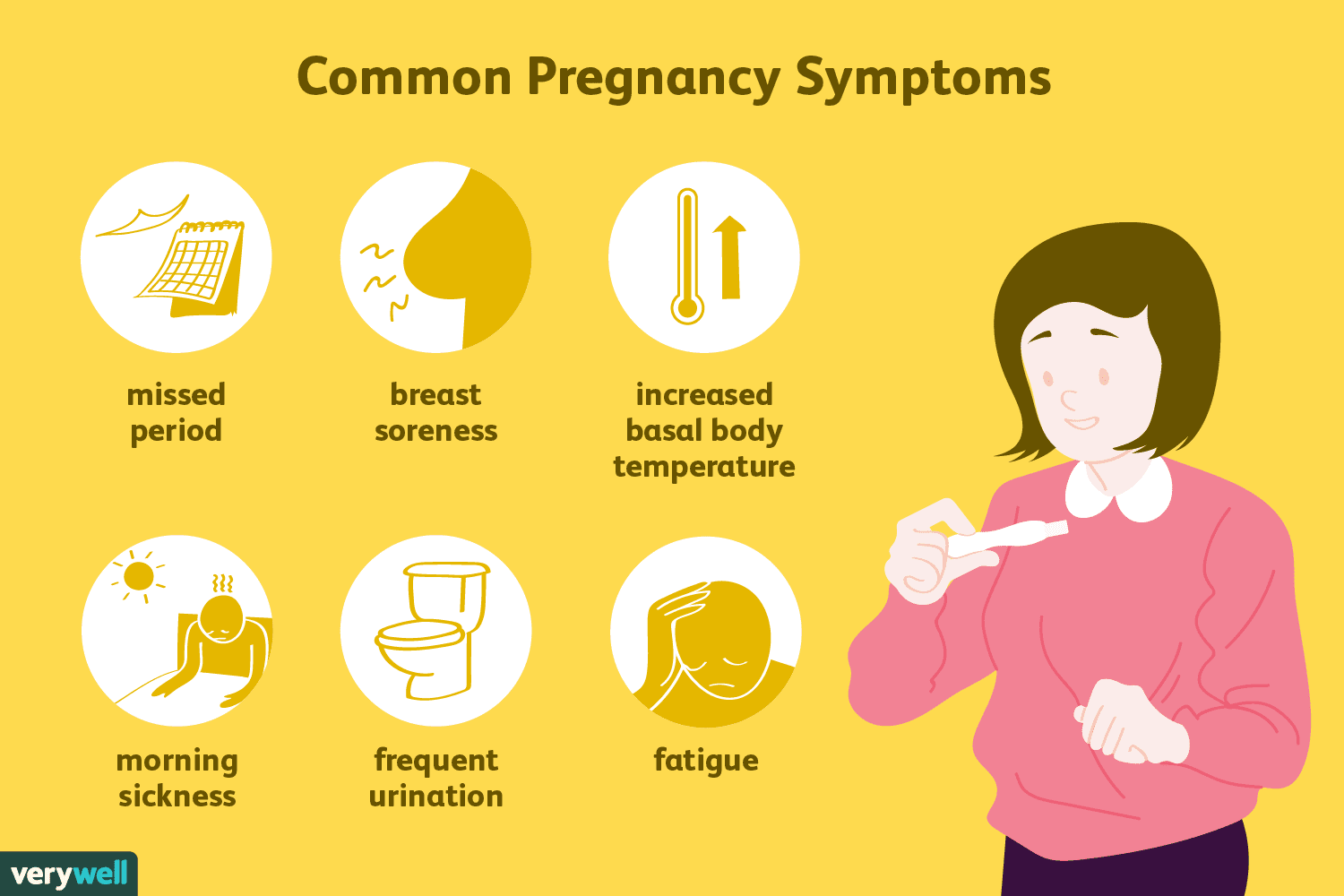Recognize the earliest signs of pregnancy

Although using a pregnancy test is the most accurate way to know if you are pregnant or not, based on the following body signs, you can also know this problem. Let's see the early signs of pregnancy that mothers often encounter!
Early signs of pregnancy
Signs of pregnancy in the first week are difficult to detect, but if you regularly monitor your health, the following signs of body changes can help you know if you are pregnant or not. The earliest.
1. Light brown blood stains
This small spot of blood will appear a few days earlier than the start of your menstrual cycle. If you look closely, it is just a small spot of blood with a lighter pink color than usual that appears for 1 or 2 days. Most people mistakenly think that a red light is coming early so they don't notice it as an early sign of pregnancy. However, only about 20% of pregnant women experience this, so if you don't have this red streak but It's completely normal to still be pregnant.
2. Body temperature is higher than normal.
If you regularly measure your body temperature, you will find that during pregnancy your temperature is higher than normal. This is because during pregnancy, the hormone progesterone secretes more, making your body temperature slightly higher than normal, similar to the basal body temperature during the days of ovulation. It's also one of those pregnancy signs that's easy to miss, as you might just think you're running a fever or are just too tired.
3. Chest tightness and pain
If you pay attention, in the first 1-2 weeks after conception, you will feel uncomfortable breasts, larger nipples and more sensitive breasts. Breast tenderness and pain is also one of the early signs of pregnancy, but it is easy to confuse with the phenomenon of approaching red light. The cause of this change is that the egg is successfully fertilized, so hormone levels in a woman's body change rapidly, increasing the blood supply to the breasts, causing you to feel a burning sensation around the head and nipples. accompanied by more intense pain than usual. Rest assured that it will take your body a few weeks to get used to this hormone change, and once you do, the discomfort in the chest area should also go away after the next few months.
4. Tired
In the first weeks of pregnancy, your body still doesn't seem to be able to adapt enough to the changes it needs to accept a new life, so you always feel tired without knowing why. What's more, elevated levels of the hormone progesterone also make you feel drowsy. This unexplained fatigue is the most common sign of pregnancy.
5. Shortness of breath and shortness of breath
Many people find that, during the first few weeks of pregnancy, they sometimes feel tightness in their chest and feel a little short of breath, or feel like they're missing a breath (short of breath). This is due to an increase in the hormone progesterone, which directly affects the lungs and stimulates the respiratory center in the brain, making breathing more rapid and difficult. Shortness of breath and shortness of breath during pregnancy are normal symptoms that almost every pregnant woman encounters, but it does not affect much to the mother and baby, so please rest assured.
6. Nausea or bloating
During the first weeks of pregnancy, you will often experience symptoms such as bloating, gas, indigestion similar to digestive disorders, the reason is that when pregnant, the body secretes hormones into its blood. affects the muscles of the gastrointestinal tract, stomach and intestines, reducing contractions, so food stays in the stomach longer, making a woman excited, causing nausea, also known as morning sickness, this sign usually appear from week 5 to 7 during and in the first 12 weeks, later this sign will decrease because the body has adapted more.
7. Sensitivity to odors
You will feel that you are very sensitive to surrounding odors such as the smell of food, the smell of cigarettes... These odors may make you feel more uncomfortable and nauseous.
8. Back pain
In the first weeks after conception, many mothers have symptoms of back pain as if the day is coming, but in fact, these are the most common and recognizable "diseases" of having an "angel" in shape. inside your uterus.
The advice is that you should not do anything because this is a "disease" of a pregnant woman. In case you have severe back pain and are accompanied by heavy bleeding, you should see a doctor to get the best advice.
9. Late period
For those who have regular menstrual cycles, unprotected sex and missed periods can be considered as the most standard signs of pregnancy. However, sometimes the missed period is just because you are stressed or taking certain antibiotics, you can use a pregnancy test to check if you are pregnant or not.
Attention moms:
These early signs of pregnancy can be more or less severe, depending on the location of each person. If you find yourself experiencing most of the above symptoms, you should visit the hospital or obstetric clinic to most accurately determine your chances of pregnancy.
The early signs of pregnancy are relative, so mothers should carefully monitor to know exactly that they are pregnant or have some health problems to promptly solve.
In the early weeks, using a pregnancy test strip may not give accurate results because the fetus is only forming low beta HCG levels, so using a test strip can not be sure of yes or no.
The above are early signs of pregnancy that mothers may experience. Early identification of pregnancy signs is a good opportunity to help you increase the necessary vitamin supplements and prevent risks affecting the health of the baby. baby and the health of pregnant women.